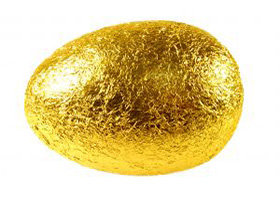

Which is why gold exchange-traded funds (ETFs) are finding a new niche in the world’s second biggest pension market—Japan. Japanese pension funds are turning in greater numbers to gold, especially as they seek to counter the effects of the financial crisis and the brutal toll the 2011 tsunami took on the Japanese economy.
Back in May, Okayama Metal & Machinery became the first Japanese pension fund to make public purchases of gold, citing a lack of faith in paper currencies. ETFs paved the way for the US$477-million pension fund to make its allocation—chief investment officer Yoshisuke Kiguchi said he was shifting into gold via ETFs to “escape sovereign risk,” according to the Financial Times.
Since that time, other pension funds in Japan have followed suit, using ETFs to access gold. According to The Wall Street Journal, the Mitsubishi UFJ Trust and Banking Corporation has secured more than two billion yen in investments from two other pension funds for a gold fund it started in March.
Gold is becoming increasingly attractive to Japan’s embattled pension funds as they confront a population, which is both shrinking and aging rapidly. This year, for example, Japan’s first-wave baby boomers turn 65 and become eligible to draw on their pensions. Japan’s pension funds are among the world’s most conservative: Towers Watson finds that bonds accounted for 59% of Japanese pension assets in 2011, the highest in the world. Japan’s pension funds also have the lowest allocations in the world to alternatives (6%): real estate, private equity and hedge funds.
Japan is also warming to the idea of gold as a hedge against unexpected shocks—as Takahiro Morita, head of the Tokyo branch of the World Gold Council, said to the Financial Times in May, “Last year’s tsunami and the eurozone debt crisis show that it was wise to expect the unexpected.”
The first ETF backed by gold was introduced in Japan in June 2008.
Canadian pension funds have certainly had their share of the unexpected. But with an economy very much driven by commodities right now, gold might not offer the diversification they’re looking for. As well, Canada’s biggest plans are already far less conservative than their counterparts in Japan, fully ensconced as many of them are in real estate, infrastructure and private equity. But the rise of gold in other pension portfolios worldwide and the proliferation of gold ETFs is definitely one reason to give this precious metal a second look.
